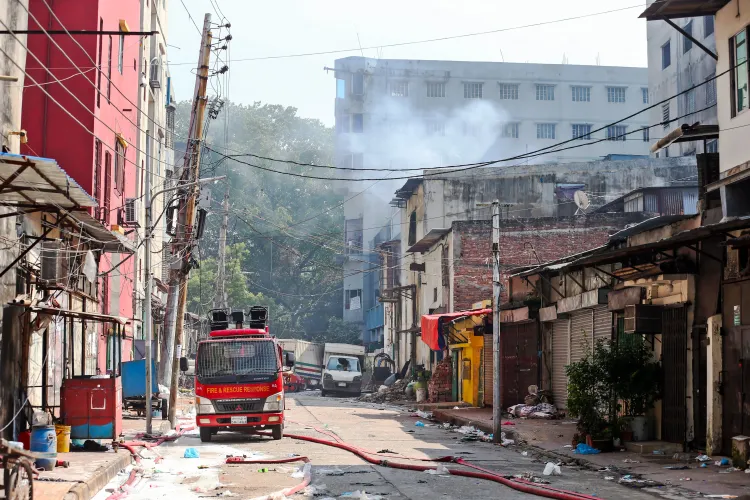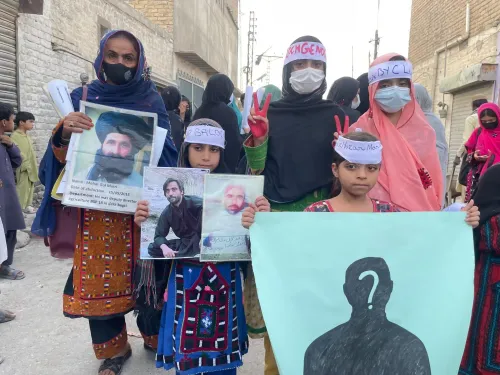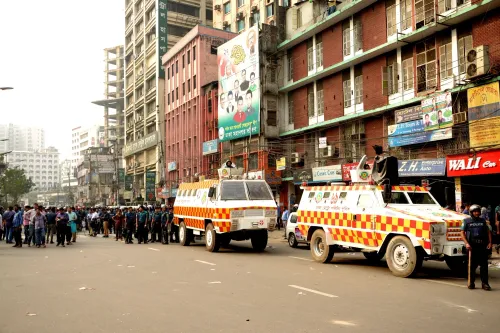Are Fire Incidents Uncovering Industrial Negligence in Bangladesh?

Synopsis
Key Takeaways
- Ongoing fire incidents in Bangladesh underline serious safety concerns.
- Recurring tragedies highlight a culture of impunity.
- Accountability mechanisms are often ineffective.
- Compensation for victims' families remains inadequate.
- Both employers and policymakers must prioritize worker safety.
Dhaka, Oct 23 (NationPress) The persistent occurrence of worker fatalities and the evident lack of accountability within Bangladesh's industrial sector has come to light following the recent devastating fire incident in Mirpur, which claimed the lives of 16 individuals, stated a senior official from the Bangladesh Institute of Labour Studies (BILS) on Thursday.
Syed Sultan Uddin Ahmmed, the Executive Director of BILS, made these observations during a press conference on labor safety held at the National Press Club in Dhaka, an event organized in collaboration with BILS and the Safety and Rights Society.
“The ongoing tragedies from Tongi and Chattogram to Narayanganj and Mirpur reveal a deeply entrenched culture of impunity that permits safety violations to go unpunished,” quoted The Daily Star, as Ahmmed expressed during the press briefing.
“After each incident, we observe a recurring pattern: a probe committee is established, reports remain undisclosed, and accountability is absent. This lack of transparency and justice is the primary reason these disasters continue to happen,” he elaborated.
Ahmmed further remarked, “When negligence results in fatalities, genuine punishment is scarce. Even compensation, which is a legal right, frequently fails to reach the families of victims.”
He emphasized that both employers and policymakers bear the responsibility for ensuring workplace safety.
“We do not seek to shut down industries; we desire them to function safely. The protection of the owner's assets is essential, but so is safeguarding the lives of workers,” he stressed.
This statement followed a series of significant fires in Dhaka and the port city of Chattogram, raising serious concerns among experts regarding Bangladesh's safety standards and emergency preparedness.
Earlier this week, the Awami League accused the interim government led by Muhammad Yunus of orchestrating arson attacks nationwide as part of a conspiracy to disrupt ordinary lives and destabilize the economy.
Criticizing the Yunus administration, the party stated, “The illegal usurper and murderous fascist Yunus gang is systematically leading a well-structured Bangladesh towards ruin. They have transformed people's lives into a nightmare. In recent days, a series of fires has erupted due to the negligence and indifference of this unlawful, irresponsible administration towards the populace.”









